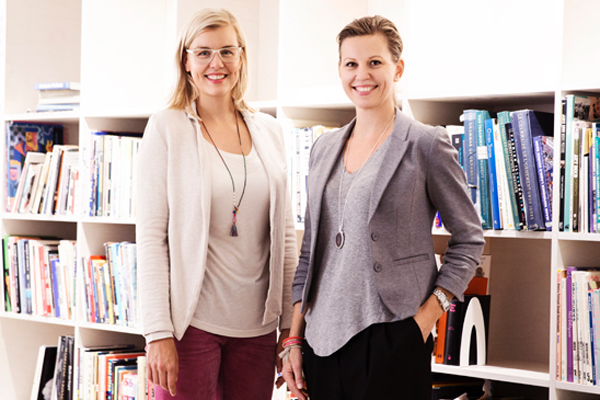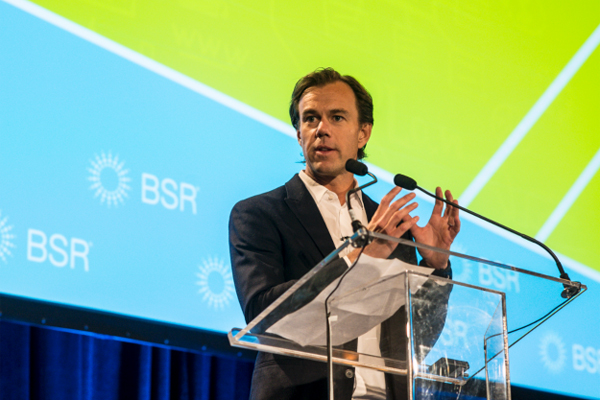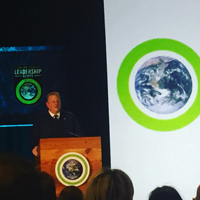
H&M’s Conscious Foundation has been at the forefront of the sustainability movement in fashion, and once again, has announced a ground-breaking collaboration for change.
On November 6, the announced that the their H&M Conscious Foundation would join forces with another Swedish brand, Kinnevik and their Reach for Change program, towards supporting social entrepreneurs to imporve the situation for young people and women in Ethiopia.
Through their respective foundations the companies are investing 8.8 million SEK over three years to set up a support program to help local social entrepreneurs in the country grow and become financially sustainable.
“Having two Swedish companies of this size join forces to invest in social entrepreneurship to benefit women and youth through their respective foundations is unique. We are joined by common traditions of entrepreneurship and innovation. Now we shall jointly use these strengths to contribute to a positive development in Ethiopia”, says Helena Thybell, Global Manager, H&M Conscious Foundation.
H&M has recently started collaborating with Ethiopian suppliers, and Kinnevik has made one investment in a small Ethiopian company earlier this year. For this reason, the two companies have decided to work together to strengthen local initiatives and promote long-term positive development in Ethiopia.
This joint effort will initially focus on identifying social entrepreneurs with the potential to create sustainable change for women and youth in Ethiopia. The social entrepreneurs have in common that they are persons with a strong drive to create positive social change; they find new solutions to local social problems and use innovative methods to turn their ideas into reality.
“One individual can change a society for the better if he or she is given the right support. Experience shows that our method for creating social impact is equally effective in countries as vastly different as DR Congo, Kazakhstan and Sweden. We are very grateful for this opportunity to also spread it to Ethiopia”, says Sara Damber, co-founder and CEO, Reach for Change.
The entrepreneurs will be given financial support, access to business expertise and networking opportunities to grow and develop their initiatives. The model for finding and supporting social entrepreneurs has been developed by Reach for Change and already implemented in nine countries across the world.
Two examples of social entrepreneurs supported by Reach for Change that have realized their ideas is Naomi Kuseyo who has successfully given hospitalized children in DR Congo access to education inside hospitals and Hayford Siaw who has developed a concept for mobile libraries that has given children in rural areas in Ghana access to literature and thereby increased literacy levels.

In addition, Karl-Johan Persson, CEO of H&M emphasized the fast-fashion retailers vision for sustainability at the recent BSR Conference November 6, 2014.
The theme of the conference was transparency and transformation, with a main focus on how an increased transparency can transform companies, consumers and communities. H&M’s fair living wage strategy – that has been drawn up in close co-operation with international trade unions, textile suppliers, the ILO and non-profit organizations – shows how the fashion industry is transforming.
In his speech, Karl-Johan Persson, pointed out how H&M with its size and dedication, wants to make a difference. He also highlighted some important prerequisites for a successful sustainability work; to make the sustainability work integrated into the business in every department – from the suppliers to customer relations, to cooperate closely with others to develop and implement new ideas, and to always act with a long-term focus.
“At H&M we want to be more than a spectator of the global developments. We have a responsibility to use our size and influence to do what we can,” said Karl-Johan Persson.
To drive change throughout the industry, not just at the H&M suppliers, is important– a task that requires a long-term work as well as a great deal of patience. One example of this is the H&M fair living wage strategy, aiming for the suppliers in the production countries to pay a wage that covers the workers’ needs. A strategy launched a year ago and initially tested in three role model factories. The evaluation will start this winter and there are already some positive indications. Persson stressed that H&M is prepared to pay the prices enabling the suppliers to pay a fair living wage.
H&M’s global garment collecting initiative was also mentioned as one important step towards a reduced use of natural resources. The fact that 95 percent of the garments can be reused or recycled into new yarns was emphasized as well as the fact that this will reduce the use of oil and water in the fashion industry.
“We need to change how fashion is made and consumed,” said Persson.
One way of increasing the transparency in the fashion industry is to work on consumer labeling, making it possible for the customer to compare environmental and social sustainability of products and brands. This is, together with the decision to make the H&M supplier list public, important steps towards an increased transparency and a more sustainable fashion industry.
Today, November 17, 2014, H&M released their latest financials for October. Group sales increased 14% in local currencies compared with last year. The total number of stores is now 3,437.


